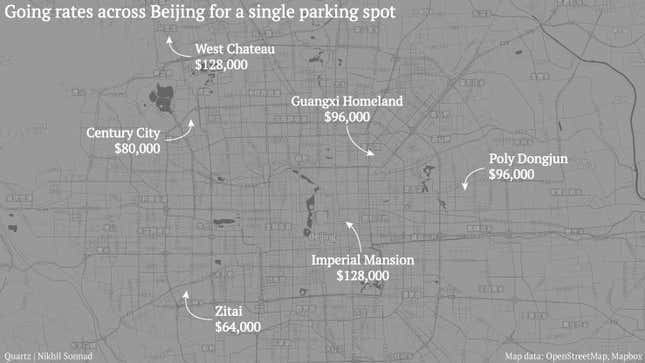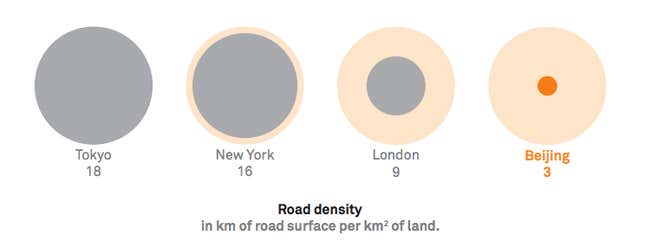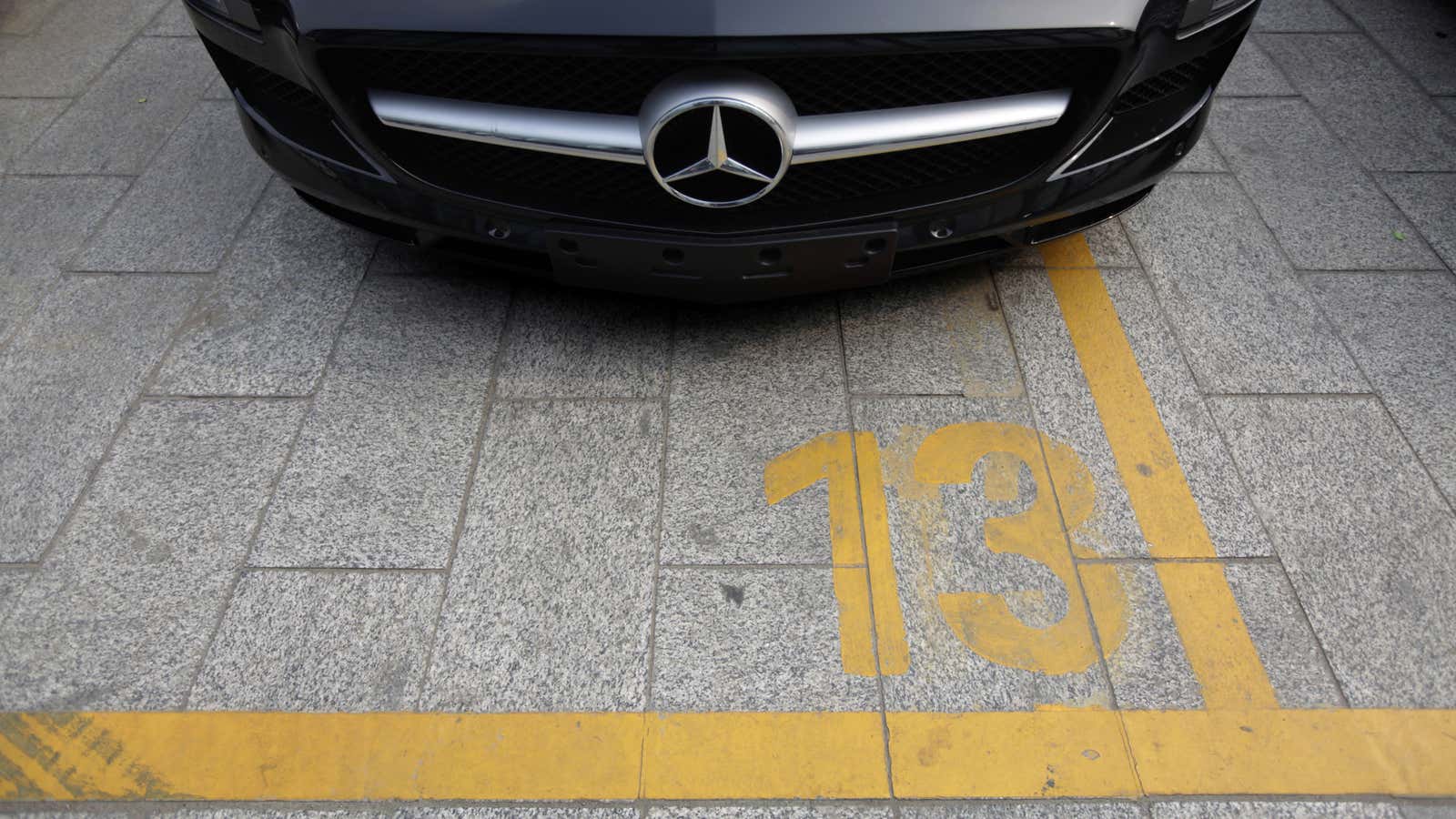Owning a car in Beijing is a pricey enterprise. But the car itself might be the cheapest part of the investment.
Underground parking spots in luxe central Beijing apartment buildings now sell for up to 1 million yuan ($160,000) (link in Chinese), according to Beijing News. Even in suburbs some 30 miles (48 kilometers) from the city’s center, to buy a parking space runs between 150,000 and 200,000 yuan—more than it costs to buy a small car.

What’s behind the high prices? For one thing, the frenzy of new car ownership means demand for a place to park far outstrips supply. The city now has 7.5 million drivers—a car for every two or three residents, depending on how you count Beijing’s population.
Zoning plans haven’t kept up with Beijing’s embrace of car culture; many slightly older developments were designed without allotting ample parking spaces. Spaces where street parking is permitted are rare. And even if they weren’t, Beijing has among the lowest ratio of roads per overall land area of any major metropolis in the world:

In theory, the official response to the city’s toxic-soup air quality should limit growth of parking demand somewhat. The government now vows to take a million cars off the street. But those will be older cars that fail emissions test and whose owners live in the most distant suburbs, not the luxury SUVs competing for space to park. The city government is also subsidizing electric-vehicle purchases and exempting them from the license-plate lottery instituted in 2011 in an effort to lower the rate at which additional cars enter Beijing’s roads (only those with plates are allowed to buy cars.) That’s great for Beijing lungs, bad for underground parking demand.
The government also just lowered the number of new license plates issued in the lottery. Fear of these restrictions, however, has prompted a surge of buying; retirees are now filling up Beijing’s driving schools (paywall) so that they can enter the lottery, upping their family’s chances of winning a coveted plate.
That buying frenzy is happening with parking spaces as well. As rental spaces have grown scarcer, panicked car-owners are opting to buy before prices spiral out of reach—sending prices higher still.
But there might be something else at play: greedy property developers exploiting their residents’ ignorance.
According to the Worker’s Daily (link in Chinese), China’s property law says that only when a developer pays for the extra underground area as part of its purchase of a given land parcel does it own the apartment building’s parking spaces. Otherwise, the garage is considered communal space owned by the tenants, the way they collectively own the hallway or elevator by dint of paying property management fees. (Curiously, the third type of garage ownership is that owned by the People’s Liberation Army Air Force, which leases land earmarked for underground bunkers to property developers.)
Though most residents don’t know this, that’s not the only problem, says the Worker’s Daily. Not only do most communities’ residents associations exist in name only, but they lack the legal channels to pursue their claims. That’s why many residents end up paying tens of thousands of dollars to property developers for a parking space that they legally own.
